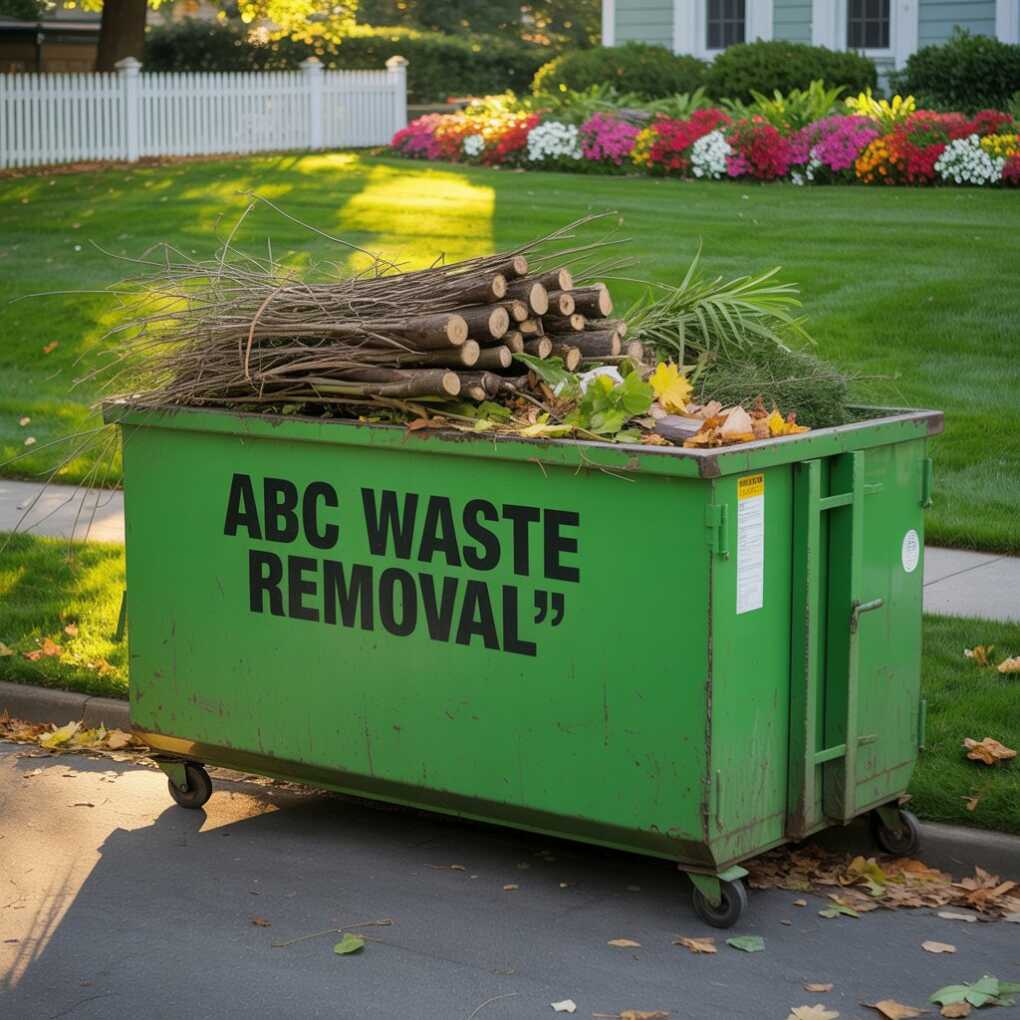Renting a dumpster for yard waste can save homeowners in Edmonton both time and stress during cleanups or landscaping jobs. Planning the right way from the start can prevent common problems and help keep projects moving smoothly.
Homeowners need to know how in Edmonton one-time bin rental services work before setting up a dumpster delivery. Understanding local rules, needed permits, and options for places to put the bin will make the process much easier. This also keeps waste disposal safe and legal for everyone involved.

Confirm if a city permit is required for dumpster placement on public property in Edmonton
Most Edmonton homeowners do not need a permit to rent a dumpster for their own driveway or private property. However, the rules change if someone wants to place a dumpster on public property such as a street, sidewalk, or alley.
City bylaws in Edmonton typically require a permit for dumpsters that sit on any public space. These permits help keep traffic, pedestrians, and emergency access clear. Placing a dumpster without the right permit can result in fines or forced removal.
The person requesting the rental is usually responsible for getting any needed permits from the city. Edmonton’s permit process often asks for details like the dumpster’s size, its location, and how long it will stay in place.
To avoid problems, always check with the city before placing a dumpster on or near public property. Regulations may change, so reaching out before delivery avoids any confusion or penalties.
Measure your available space to choose a dumpster size that fits your yard and access points.
Homeowners in Edmonton often have limited space for dumpsters. Before choosing a dumpster size, they should look at the area where the container will sit. Driveways, walkways, and garden beds might limit the available space.
It helps to measure length, width, and height to see if a dumpster fits without blocking paths or gates. For example, a 10-yard dumpster usually fits well in most driveways, while 20-yard or larger options require more room. Each size has different dimensions, so checking the space ahead of time prevents headaches later.
Accessibility also matters. Delivery trucks need a clear path to drop off and pick up the dumpster. Trees, low wires, or tight corners can cause problems. If access is tight, a smaller dumpster may work better, even if it means a second rental.
Accurate measurements save money, avoid delays, and help keep the yard tidy throughout any project.
Select an 8-yard or 15-yard bin for typical yard waste projects, depending on volume
Most homeowners can use either an 8-yard or a 15-yard bin for yard waste. The right size depends on the amount of material that needs disposal. An 8-yard bin usually fits smaller yard cleanups or lighter garden debris.
A 15-yard bin works well for bigger projects like trimming multiple trees or clearing larger gardens. It gives extra space for old sod, heavier branches, or leftover patio materials. Choosing a bin with enough capacity can help prevent extra fees for overfilling.
Size matters because junk from outdoor projects piles up fast. By selecting the right bin at the start, homeowners make their entire cleanup easier and avoid extra trips. Both sizes can handle typical yard waste, but larger jobs benefit from the extra room of a 15-yard bin.
Check local disposal fees for yard waste at Edmonton transfer stations to avoid surprises.
Many homeowners forget to check yard waste disposal fees before renting a dumpster. In Edmonton, transfer stations and waste management centers each set their own pricing for yard waste drop-off. Some sites accept certain yard materials at no extra cost, but special rules or restrictions may apply.
Residents may bring loose yard waste or use paper bags for drop-off. Transfer stations often require plastic bags to be emptied onsite. For large loads processed through a dumpster, standard rates for mixed garbage can apply unless the waste is clearly separated and matches yard waste guidelines.
Limits or restrictions exist for some materials, such as tires or hazardous items, so it is wise to review each facility’s accepted list. Checking disposal fees ahead of time helps avoid unexpected costs. Always confirm the materials allowed, bag requirements, and quantity limits with the transfer station before arranging a large yard cleanup.
Notify neighbors about the dumpster delivery and pickup schedule to minimize disruptions
Homeowners help avoid unnecessary trouble by letting neighbors know about the dumpster’s arrival and removal dates. Advance notice makes things smoother, especially if neighbors share a driveway or parking space. Surprises can cause frustration or confusion, so simple communication works best.
Notifying nearby residents gives them a chance to adjust their own plans if necessary. They might need to move a vehicle or prepare for extra noise. Clear information builds understanding and keeps relationships friendly.
A short note, call, or chat works well. Include the dates for both delivery and pickup, as well as the spot where the dumpster will sit. Being open and respectful with neighbors reduces the chances of complaints and keeps everyone better informed.
Taking this step shows respect for others’ routines. Neighbors appreciate being considered in advance. As a result, this simple effort makes the whole project feel less stressful for everyone involved.
Conclusion
Homeowners in Edmonton should review city rules and guidelines before ordering a dumpster for yard waste. Waste type, dumpster size, and placement may affect the success of a cleanup project. In addition, knowing weight limits and any extra fees helps avoid surprises.
Clear communication with the rental company also supports a smoother process. By planning ahead, homeowners make responsible choices and finish their yard work efficiently.
